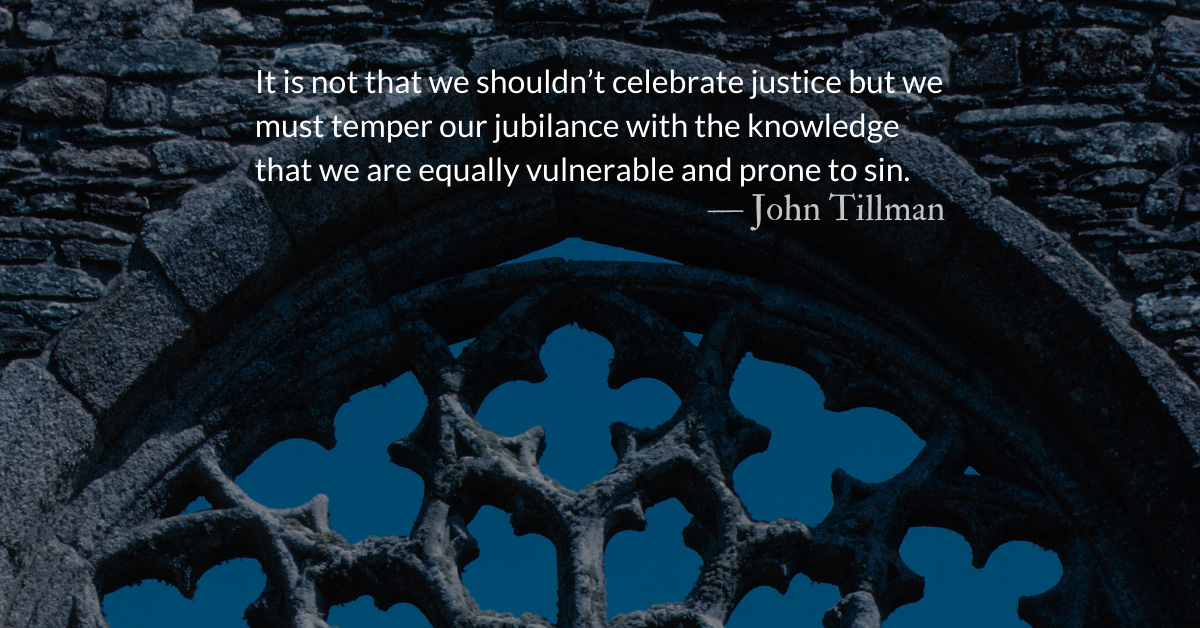Scripture Focus: Obadiah 12, 15-17
12 You should not gloat over your brother
in the day of his misfortune,
nor rejoice over the people of Judah
in the day of their destruction,
nor boast so much
in the day of their trouble.
15 “The day of the Lord is near
for all nations.
As you have done, it will be done to you;
your deeds will return upon your own head.
16 Just as you drank on my holy hill,
so all the nations will drink continually;
they will drink and drink
and be as if they had never been.
17 But on Mount Zion will be deliverance;
it will be holy,
and Jacob will possess his inheritance.
From John: Last week, another leader I looked up to left ministry due to a moral failure. The organization, I think, will eventually be fine. But it is a shaking blow. Many leaders or heroes of mine have fallen in one way or another. Pride, politics, or sexual scandals have taken them down. Sometimes I’ve been glad to see them humbled or stopped after what they became. I’ve also seen God’s grace in rebuilding after a blow. A friend is now working at a church where a former hero of mine fell in 2019. Years after crisis and failure at the highest level, healing and repair are happening. As we witness these things, we return to this post from 2022 about the fall of Edom. Whether moral failure or abuse, whether regarding our enemies or our friends, we must not gloat or despair over truth being revealed or justice coming. Instead, let us turn inward to our own hearts and to the hearts of our own organizations. Let us examine our own foundations.
Reflection: Lesson of Edom
By John Tillman
Obadiah has a tightly focused vision. Don’t gloat or take pleasure at the downfall of others, especially your brothers and sisters.
We’ve often written about leaders, churches, and organizations that have been destroyed by revelations of misconduct and sin. We have said, “When sin is revealed and an organization crumbles, it was God who struck the blow, not an enemy.”
Even though churches may be damaged, this destruction is not caused by “enemies of the church.” Those who reveal wrongdoing are cooperating with God. However, when we witness this, we should be humbled, not prideful. We should be mournful and mindful of our own vulnerabilities, not smug and boastful of our infallibility.
I have seen examples of this in my faith tradition. When the Catholic Church was rocked with sex abuse scandals in the early 2000s, many prominent Southern Baptists took it as an opportunity to put Catholicism on blast. They blamed celibacy, episcopal polity, and Catholic theology. They took victory laps on Twitter and in think pieces that pridefully postured their “superior” polity and ecclesiology as bulwarks against abuse.
As the revelations continue to roll in about sexual abuse in the SBC, it is clear that SBC polity, theology, and leadership were unable or unwilling to prevent abuse or protect the organization or the victims of abuse. The same practices and worse were occurring in our own house, even while we threw stones at our Catholic brethren. We didn’t learn from the Edomites.
What is the purpose of this comparison to Edom?
We must look inward to examine the hearts of ourselves, our leaders, and our organizations. Just as there are some who wrongly label those who expose the truth about corruption as enemies, there are some who seem to take pleasure in the carnage of organizations stricken by scandal.
It is not that we shouldn’t celebrate justice, but we must temper our jubilance with the knowledge that we are equally vulnerable and prone to sin.
The point of Obidiah’s vision is that there is no corner of creation, no kingdom, no people over whom God does not hold authority. God intends to purify individuals, churches, and kingdoms through whatever means required. Where there is sin, he will expose it. Where there are victims he will be on the side of justice. May we stand with him.
Further Reading: Dr. Russell Moore, writing in 2019, “Southern Baptists Face Their #MeToo Moment”
Divine Hours Prayer: The Request for Presence
I call with my whole heart; answer me, O Lord, that I may keep your statutes. — Psalm 119.145
– From The Divine Hours: Prayers for Summertime by Phyllis Tickle.
Today’s Readings
Obadiah 1 (Listen 3:28)
Psalm 74 (Listen 2:34)
This Weekend’s Readings
Jonah 1 (Listen 2:29), Psalm 75-76 (Listen 2:33)
Jonah 2 (Listen 1:20), Psalm 77 (Listen 2:12)
Read more about When God Shakes Our Foundation
God is doing this, not an enemy. God is striking our pillars. God’s church is renewed by the removal of corrupt leaders.
Read more about No Princes
Unable to separate their faith from the identity of the leader, they abandon faith.








